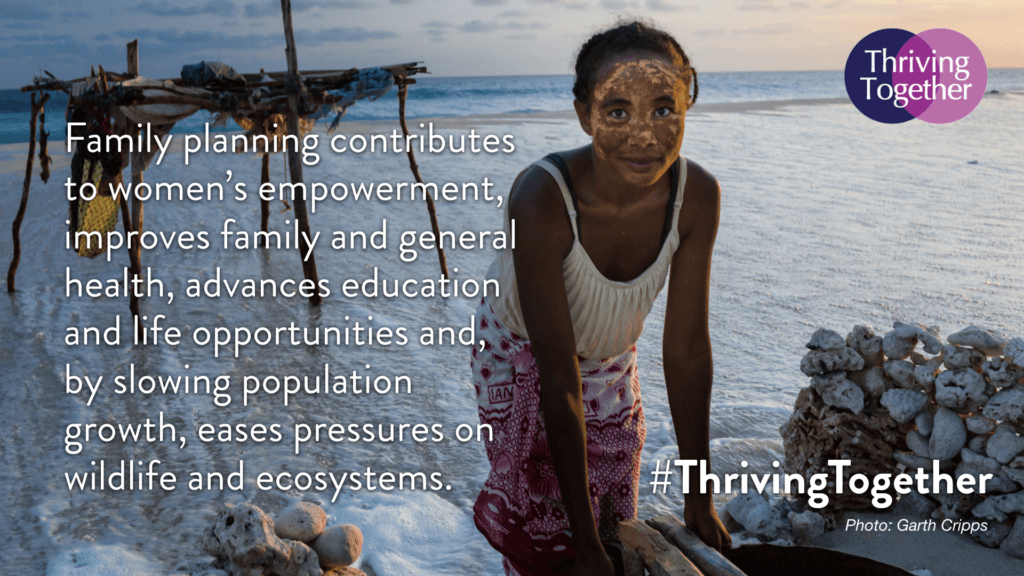World Population Day 2019
People’s Trust for Endangered Species joins the #ThrivingTogether campaign on World Population Day to highlight the world’s most important yet ignored environmental action. The Thriving Together campaign recognises that family planning is critically important not only for women and girls but also for the environment.
Today, PTES joins over 150 other leading environmental and reproductive health organisations to pledge support for a first-of-its-kind campaign: Thriving Together. Organisations that have signed up to the Thriving Together campaign form a diverse global alliance united by the agreement that improving access to family planning services is critically important for the environment and biodiversity.
The Sustainable Development Goals call for integrated solutions. PTES along with other organisations backing the Thriving Together campaign agree that whether working in health or environmental conservation, through sharing information and working together on strategic projects and policies, we can help human communities and their ecosystems thrive. Successful biodiversity conservation requires taking people, our health, and our interactions with the natural world into account.
Lessen the pressures
Increasing human pressures are among the many challenges facing planetary health. In addition, by harming ecosystems, people undermine food and water security and human health, and threaten habitats and species. Ensuring family planning is available to all who seek it is among the positive actions organizations must take to lessen these pressures.

The United Nations projects that global population will rise from 7.7 billion today to 9.8 billion by 2050. Future population growth is uncertain however, and highly sensitive to small changes in the average number of children per mother. If the physical, financial, educational, social and religious barriers to people using family planning services were removed and the average number of children per mother was just 0.5 lower than the UN population projection which is most commonly used, global population would peak at 8.8 billion in 2050, rather than 9.8 billion.
A well-organised human right
This is all possible, by enabling the exercise of a well-recognized human right, that people should be able to decide for themselves, whether, when, how often and with whom to bring children into the world. Family planning contributes to women’s empowerment, improves family and general health, advances education and life opportunities and, by slowing population growth, eases pressures on wildlife and ecosystems.
Other organisations backing the Thriving Together campaign across the globe include Bristol Zoological Society, Community Health Africa Trust, Conservation Through Public Health, Jane Goodall Institute, Paignton Zoo, Rainforest Trust. Collectively, the organisations work in over 170 countries.
The Thriving Together campaign is spearheaded by the Margaret Pyke Trust, which has over 50 years’ experience of family planning and is the only member of the International Union for Conservation of Nature (IUCN) with this expertise.
David Johnson, Chief Executive at the Margaret Pyke Trust says: “The existence of barriers to family planning is the most important ignored environmental challenge of our day. This changes now. The Thriving Together campaign encourages cross-sectoral support between health and environmental conservation organizations, showcasing that when people can choose freely whether and when to have children it is for the benefit of both people and planet. Barriers to family planning are not only relevant to those who are passionate about improving health, gender equality, empowerment and economic development, but also to those who are passionate about the conservation of biodiversity, the environment and sustainability.”
The Margaret Pyke Trust’s Thriving Together campaign is informed by its paper ‘Removing Barriers to Family Planning, Empowering Sustainable Environmental Conservation’, which sets out how and why family planning is important for the environment.
